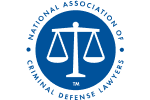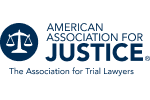Defense Lawyers
Accessory & Conspiracy
Accessory Before the Fact
An “accessory before the fact” is someone who encourages or helps plan a crime. An accessory can be charged and indicted the same as the person who committed the crime even if he was not present at the time and place the crime was committed. An accessory before the fact procures, incites, encourages, counsels or commands another to commit a crime. An accessory before the fact is deemed a principal under Mississippi law. The difference between an accessory and principal is often a question of fact and degree of involvement.
Aider and Abetter
An aider or abetter is someone who intentionally participates in a criminal activity, and actively encourages or furthers the purpose of the criminal activity. An aider and abetter acts in an affirmative manner. To “Aid or Abet” means to assist the perpetrator of a crime or participate by some affirmative act intending to influence the crime. If a person deliberately associates himself in some way with the crime and participates with the intent to bring about the crime, he can be charged and convicted as a principal. Merely being a witness to the crime does not make a person guilty of the crime.
The primary difference between an “aider or abetter” and “accessory before the fact” is whether the person is present when the act is committed. If a person is actually present and participates in the crime, he can be charged as an aider and abetter. If he is not present when the crime was committed but otherwise influenced the outcome, he is an accessory before the fact. The common thread is criminal intent. Mississippi has enacted a law protecting minors from adults who encourage them to commit serious crimes. It is a felony for any adult over 18 to encourage a minor to commit a crime.
Accomplice
An accomplice is someone who knowingly and voluntarily, with the same intent as a principal, unites in the commission of a crime. In Mississippi, an accomplice is punished the same as the person who committed the crime. The best Mississippi lawyers know how to approach the District Attorney or the United States Attorney about being a witness instead of a defendant. If the accomplice retains an experienced Mississippi attorney, sometimes an accomplice can turn the tables. Timing can be critical since this strategy is most effective upon receiving a Grand Jury subpoena or soon after arrest.
Accessory after the fact
An accessory after the fact is a person who assists and protects someone who committed a crime. In Mississippi state court, this can consist of concealing the offender with intent to help the him escape or avoid arrest, trial, conviction or punishment after commission of a felony. In federal court, accessory after the fact is a person who assists the offender to hinder arrest, trial or punishment.
Conspiracy
Conspiracy can be charged in both Mississippi state and federal courts. A conspiracy exists when two or more persons voluntarily agree to accomplish any unlawful purpose or a lawful purpose by unlawful means. Co-conspirators form a community of unlawful intent where one member of the conspiracy commits an overt act in furtherance of the crime.
A conspiracy to commit a crime is separate from the crime itself. Conspiracy is an independent crime and punished separately, even if the primary offense is never completed. The prosecution must prove that the defendant committed some act in furtherance of the common criminal intent. In Mississippi state courts, the prosecution must prove the conspirator committed an independent act toward the purpose of the conspiracy. Further, the prosecution must show the conspirator knew about the conspiracy and intended to accomplish its purpose. In federal court, the prosecution is not required to prove any independent act to prove the conspiracy.
Evidence of a conspiracy can come from circumstances, statements and conduct of conspirators. Conspiracy may be proven by circumstantial evidence. Mere knowledge of the existence of the conspiracy without active involvement is insufficient to prove conspiracy. Renunciation or withdrawal from the conspiracy can limit a defendant’s criminal liability. A person can withdraw from a conspiracy by doing an affirmative act inconsistent with the conspiracy and telling the other conspirators he withdrew.
Defenses
Defenses are fact specific to each case. In Mississippi, a person can withdraw from a criminal enterprise by voluntarily abandoning his intent to commit the crime. Further, if it was impossible to commit the crime when attempted, that can be a defense. Sometimes a defendant can turn the tables and testify as a witness or otherwise limit his exposure. If an accomplice testifies for the government, the remaining defendants can request the jury be instructed that the accomplice testimony is viewed with suspicion and distrust.
If you have been charged with a crime or received a Grand Jury subpoena, contact Albert R. Jordan IV of Healy & Jordan, PLLC at 228.863.0123.







